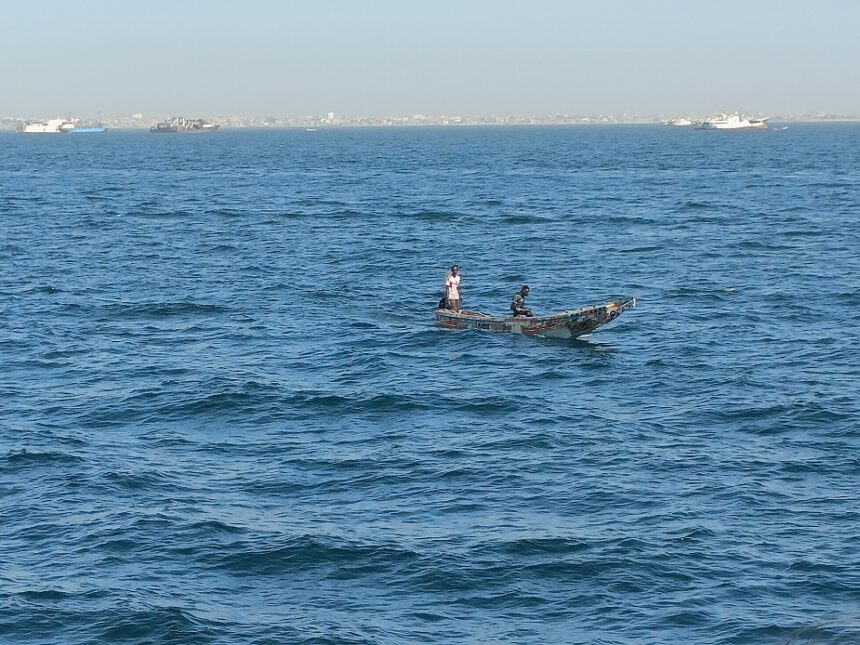
By Joyce Chimbi – j.chimbi@gmail.com
Powered by the Indian Ocean, Kenya’s coastal region is a natural wonder of an exotic ecosystem of numerous beaches, coral reef and a variety of unique plant and animal species.
“We define the blue economy as an umbrella term for sectors such as fisheries, aquaculture and mariculture, marine tourism, offshore oil and gas, maritime transport and logistics, safety and security and maritime domain awareness,” says Raymond Mwashigadi, a maritime expert and independent consultant on blue economy.
In 2021, the Ministry of Tourism estimated the contribution of travel and tourism to GDP at 24 per cent. It said tourism employed over 1.6 million people, making it the second most significant sector after agriculture.
The coastal region is the backbone of Kenya’s domestic and foreign tourism, supporting millions of people directly and indirectly.
Tourism earnings are projected to rise to Ksh425 billion (USD 283 million) this year. It plays a critical role in protection and preservation of coastal ecosystems. Research increasingly shows that Blue Economy provides appropriate framework linking all sectors in coastal zones for sustainable planning and management.
Ms Melissa Maria Theuri, a researcher in climate change and biodiversity says the country is slowly waking up a sleeping giant by developing a framework to use Kenya’s rich natural resources sustainably. She notes that the country has a history of taking from the ecosystems without realising that nature and humanity can only co-exist in a give and take scenario.
One of the most important steps the country has taken is to develop policy and a legal framework that is protective of the natural resources within the blue economy framework. Such legal frameworks include Kenya’s Forest Conservation and Management Act that created provisions to enable communities to partner with the Kenya Forest Service in conserving, preserving and protecting mangrove forests at the coastal region.
According to Jacinta Kimiti, an associate professor at South Eastern Kenya University’s School of Environment, Water and Natural Resources, projects around conserving, preserving and protecting mangroves are in line with the Kenya’s Nationally Determined Contributions (NDCs) to achieve the Paris Agreement’s goals to peak Greenhouse Gas (GHG) emissions.
The plan focuses on avoiding losses to precious natural resources (in this case the mangrove forest) achieving economic, social and environmental benefits and affirms that mangroves are central in combating climate change and conserving biodiversity. In the NDCs, revised and resubmitted to the UNFCCC in 2020, Kenya commits to abating GHG emissions by 32 per cent by 2030.
Mangrove forests offer multiple benefits for climate mitigation and adaptation. They absorb three to four times more carbon than tropical upland forests and reduce the debilitating effects of floods.
Kenya now has a National Mangrove Ecosystem Management Plan 2017-2027 to boost the country’s contribution to limiting global warming.
“We are now seeing two community-based mangrove projects; Vanga and Mikoko at the coast raking in millions from carbon credit that are then used for the benefit of the entire community to support critical projects around Water, Health and Sanitation education and livelihoods,” says Mwashigadi.
He says the blue economy has immense potential to positively impact lives, livelihoods, coastal economy and the national GDP in significant and sustainable ways.
According to the Ministry of Transport, Infrastructure, Housing, Urban Development and Public Works, if utilised properly, the blue economy can inject an estimated $4.8 billion to Kenya’s economy and create 52,000 jobs within the decade.
Due to the collaboration, coastal communities are increasingly aware of the magic of mangrove blue carbon to combat debilitating effects of climate change, support livelihoods and be a pathway to accelerate an inclusive economic growth.
“Kenya is setting the pace for countries with coastal blue carbon ecosystems by looking into the ocean for climate change and business solutions. To bring in even more tourists, we must add value to our natural resources. For instance, Kenya is keen on exploring the issue of birds and biodiversity. Bird watching is big business and coastal communities are rejuvenating their mangrove forests and birds that had disappeared are slowly returning,” says Mwashigadi.
He says the national blue economy blueprint is steadily generating wealth while sustainably managing marine resources. He observes that by prioritising sectors such as aquaculture and sustainable fishing, local communities successfully build resilience which is key for accelerating sustainable development.
He says building sustainable ocean-based enterprises is anchored on providing a regulatory framework for sustainable businesses so that communities understand that taking from the environment without giving back is wrong.
Ms Theuri says on the International Day for the Conservation of the Mangrove Ecosystem, communities plant hundreds of mangrove seedlings because the benefits are evident, including increase in fish stocks.
Mangroves provide breeding ground for fish and help bring them closer to the shore.
The experts agree on the importance of conducting extensive financing research and inter-linkages with development activities, as this too is a pillar of the blue economy roadmap.









